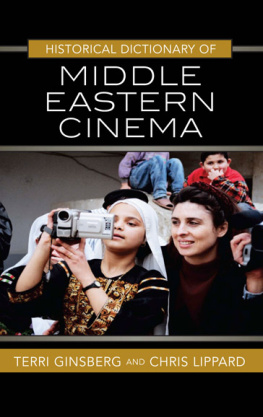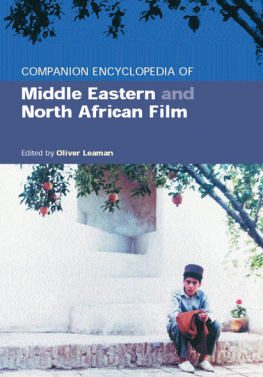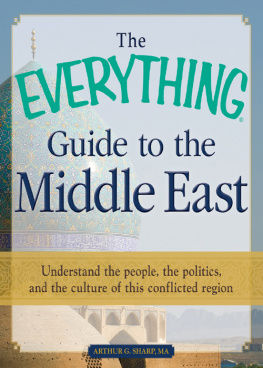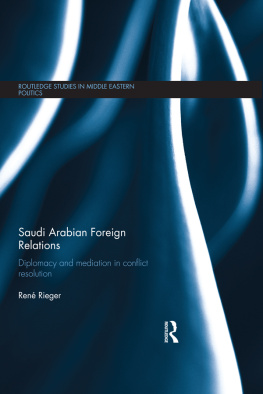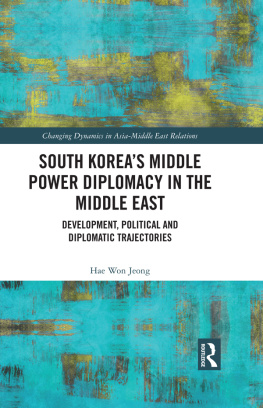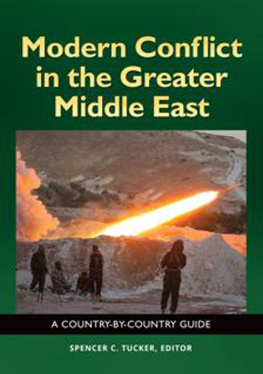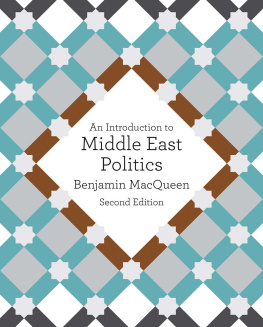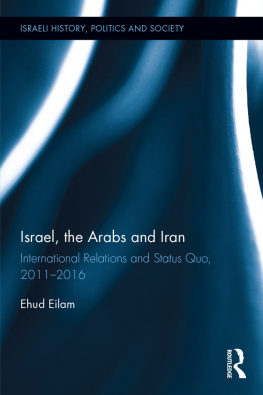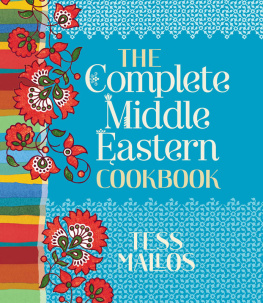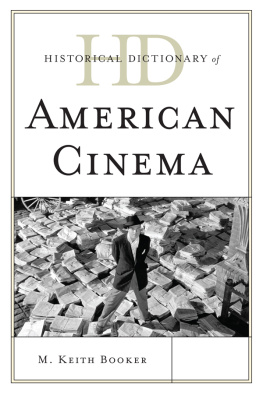About the Authors
Terri Ginsberg earned her Ph.D. in Cinema Studies from New York University. She is author of Holocaust Film: The Political Aesthetics of Ideology (Cambridge Scholars), coeditor of Perspectives on German Cinema (G. K. Hall/Macmillan), and editor of a special issue on media and film of the International Journal of Contemporary Iraqi Studies. She has published numerous scholarly articles on the cinematic representation of the PalestinianIsraeli conflict, gender and sexuality in film and literature, and film and media pedagogy. Formerly cochair of the Society for Cinema and Media Studies (SCMS) Middle Eastern Caucus, she has taught film, media, and literature at numerous institutions, among them New York University, Rutgers University, Dartmouth College, Ithaca College, and Brooklyn Collegeincluding courses on international cinema and cinema of the conflict in PalestineIsraeland is presently a director at the International Council for Middle East Studies (ICMES) in Washington, D.C. She is currently at work on an anthology that will examine contemporary postcolonial and transnational approaches to German cinema.
Chris Lippard holds a Ph.D. in Film, Literature, and Culture from the University of Southern California. He is assistant professor of film studies and director of graduate studies in film at the University of Utah. He has published work on Abbas Kiarostami, Derek Jarman, Dennis Potter, F. W. Murnau, and Jorge Sanjines, and has essays forthcoming on Michael Moore, and issues of identity formation among immigrant groups in the United States. He was cochair of the SCMS Middle Eastern Caucus from 2004 to 2007, and is also past chair of the Utah Film and Video Center, a space for the presentation of noncommercial cinema and the rental of equipment to members of the community. He is currently a fellow of the Inter-American Research group, E Pluribus Unum?: Ethnic Identities in Transnational Integration Processes in the Americas, based at the Centre for Interdisciplinary Research (ZiF) in Bielefeld, Germany.
About the Contributors
Farshad Aminian is a native of the Kurdish Province of Kermanshah, Iran. He earned his undergraduate degree from the University of Utah and his graduate degree from Southern Illinois UniversityCarbondaleboth in film. He has taught film studies and production at Southern Illinois UniversityCarbondale, Ithaca College, and Florida Gulf Coast University, where he is assistant professor of Media Studiesincluding courses on Iranian cinema, experimental and documentary filmmaking, and civic engagement. He has directed several experimental, narrative, and documentary films, most recently What WouldYou Like to Become? Answers from Iranian School Children, which documents his visit to Iran with his partner and collaborator, Sachiko Tankei-Aminian, and their interaction with public elementary school children in Kermanshah. The two have just completed a short experimental documentary, July 2008, Japan, concerning their private emotional journey to Hiroshima.
Savas Arslan is associate professor of film and television at Baheehir University in Istanbul, Turkey. He has published articles on Turkish cinema, arts, and culture in a variety of international journals and magazines, including Cineaste, Shakespeare, Film International, and Cinemascope, and a book chapter in Youth Culture in Global Cinema (University of Texas Press). He also has a book, Melodrama, in Turkish, in addition to various journal and magazine articles and book chapters on cinema, arts, and culture. He is currently working on a book entitled Hollywood alla Turca: A History of Cinema in Turkey (Oxford University Press, 2010, forthcoming).
Sandra G. Carter was assistant professor of communications at Penn State University. She received her Ph.D. in International Communication from the University of Texas at Austin, where she also earned a B.A. in Middle East Studies and an M.F.A. in Film and Video Production. She has studied international cinema extensively, particularly cinemas of the Middle East and North Africa, and has been awarded two Fulbright research fellowships and an American Institute of Maghrebi Studies grant. She has published on Moroccan cinema, including the book What Moroccan Cinema?
Anne Ciecko is associate professor of international cinema at the University of MassachusettsAmherst, where her courses include Arab Cinema; she also curates a biennial Arab film series. She was a 2008 research scholar in Jordan and has been investigating international film festivals, film scenes, and screen personalities in the Middle East (including Jordan, Lebanon, United Arab Emirates, Egypt) and elsewhere (FrancoArab cinema, Arab cinema at European and East Asian festivals). She is especially interested in promoting awareness about emerging film cultures and national/transnational cinemasas well as popular and hybrid genres, media cross-overs, and new/under-recognized/rediscovered films, directors, and onscreen talent.
Gayatri Devi is assistant professor of English at Lock Haven University of Pennsylvania, where she teaches world literature, womens literature, linguistics, and grammar courses. She has served as co-chair of the Society for Cinema and Media Studies (SCMS) Middle Eastern Caucus, where she has helped coordinate conference panels and film viewings on Middle Eastern films and visual media. Her published work includes essays and reviews on subaltern and resistance literatures, literary studies and globalization, Middle Eastern literatures, gender and Islamic literatures, and South Asian literatures and films.
Iman Hamam teaches rhetoric and composition at the American University in Cairo, where she has also taught film studies. She has lectured on Arabic Middle Eastern cinema in the United Kingdom and has written on early film, Palestine, and Egyptian comedy. She is currently noting the transformations occurring in Egypts contribution to satellite television and the city of Cairo. She writes mostly across the disciplines, dealing with visual culture in medicine, film, and urban studies. She is also interested in the im/possibilities presented by forms of categorization and the collection of mass-produced popular and perishable artifacts.
Helga Tawil-Souri is an assistant professor in the Department of Media, Culture, and Communication at New York University. Her research focuses on various aspects of Arab and Palestinian media practices and spaces, including analyses of local broadcasting industries and cinema, the relationship between the Internet and national/economic development, and issues surrounding social and political spaces. She is also a photographer and documentary filmmaker.
Mark R. Westmoreland is a visual anthropologist and documentary filmmaker, whose research examines the relationship between memory and mediation. His ethnographic video, Cultural Equipment, examines the cultural claims to the origins of coffee in Ethiopia. Next, he collaborated on several oral history documentaries that focused on multiracial experiences in rural Texas. More recently, his research has focused on experimental documentary filmmaking in postcivil war Lebanon in order to better understand how people experience and represent the uncertainty and volatility of daily life amid recurrent violence. He is presently an assistant professor of anthropology at the American University in Cairo.
Acronyms and Abbreviations
| AFD | Arab Film Distribution |
| AIF | Arab Image Foundation |
| BBC | British Broadcasting Corporation |
| BMC | Bethlehem Media Center |
| CAAIC | Centre Algrien pour lart et lindustrie cinmatographiques / Algerian Center for Cinematic Art and Industry |

